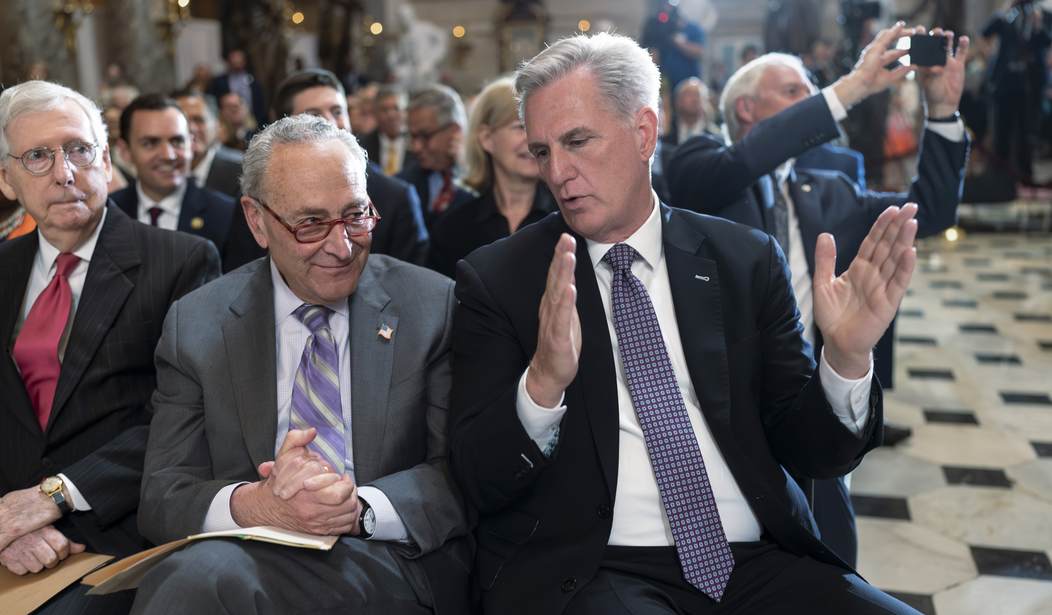With the countdown to default ticking away, House Speaker Kevin McCarthy and Joe Biden reached a deal to extend the debt limit until the end of 2024. The agreement includes a cap on annual discretionary spending for two years with a 1% increase in 2025. Surprisingly, the deal also incorporates spending cuts demanded by Republicans, despite initial opposition from the White House.
The agreement brings several significant changes, such as reduced funding for the IRS, the introduction of work requirements for certain government benefits, the retrieval of funds from COVID-19 relief programs, and the reinstatement of student loan repayments. Additionally, the bill expands work requirements for food stamps but not for Medicaid recipients. While the deal includes measures that may be seen as defeats for the Democrats, there are still plenty of Republicans who aren’t happy with it — and that means the deal may not get the support it needs to pass.
The deal will be tested during a Tuesday Rules Committee hearing, where the bill will be prepared for a House vote. The committee is controlled by Republicans, holding a 9-4 majority. However, two GOP members, namely Reps. Chip Roy (R-Texas) and Ralph Norman (R-S.C.) have already publicly criticized the bill over the weekend and appear ready to vote against it. This could sink the deal entirely because, during the speaker vote earlier this year, McCarthy agreed that Republican support for a bill must be unanimous within the Rules Committee before it advances to the House floor.
“It’s not a good deal,” Roy tweeted Monday. “Some $4 Trillion in debt for — at best — a two-year spending freeze and no serious substantive policy reforms.”
Why I will oppose the #DebtCeiling “deal.” It’s not a good deal. Some $4 Trillion in debt for – at best – a two year spending freeze and no serious substantive policy reforms. #NoDeal pic.twitter.com/C73fjSA2Fr
— Chip Roy (@chiproytx) May 29, 2023
“This ‘deal’ is insanity,” Norman tweeted Saturday night. “A $4T debt ceiling increase with virtually no cuts is not what we agreed to. Not gonna vote to bankrupt our country. The American people deserve better.”
This “deal” is insanity.
A $4T debt ceiling increase with virtually no cuts is not what we agreed to.
Not gonna vote to bankrupt our country. The American people deserve better.
— Rep. Ralph Norman (@RepRalphNorman) May 28, 2023
Other Republicans look at it differently.
“We’ve effectively delivered and, in fact, over-performed in a number of areas in the topic of limiting spending, saving money directly for taxpayers today, and producing policies that will increase economic growth and improve the workforce,” says Rep. French Hill, (R-Ark). “You know, we all wish it were perfect. We all wish that it had every element that every Republican wanted. But I think they’ll go and individually have those conversations with our members, and really limit those who still are dissatisfied.”
Related: Conservatives Should Quit Whining About The Debt Deal. Here’s Why
A recent survey from Convention of States Action, in partnership with The Trafalgar Group on raising the debt ceiling revealed differing opinions among voter groups. Among independents, 61.7% oppose raising the debt ceiling without spending cuts, while 38.3% support raising it without such cuts. For Republicans, an overwhelming 90.2% oppose raising the debt ceiling without spending cuts, compared to only 9.8% in favor. Among Democrats, 28.1% oppose raising the debt ceiling without spending cuts, while a significant majority of 71.9% support doing so.










Join the conversation as a VIP Member